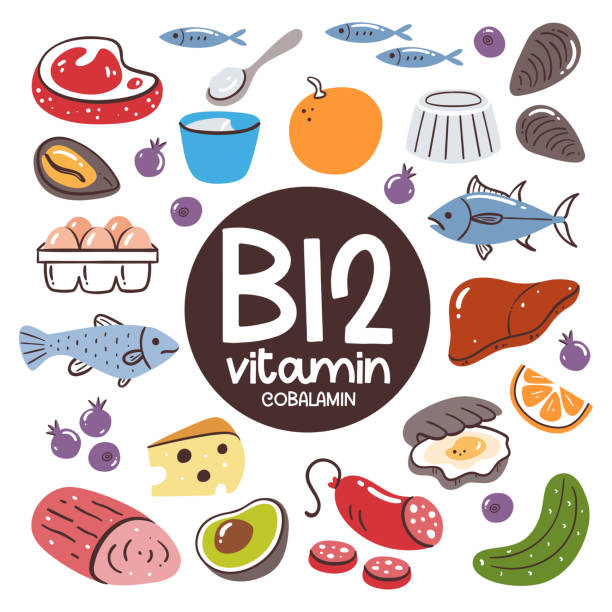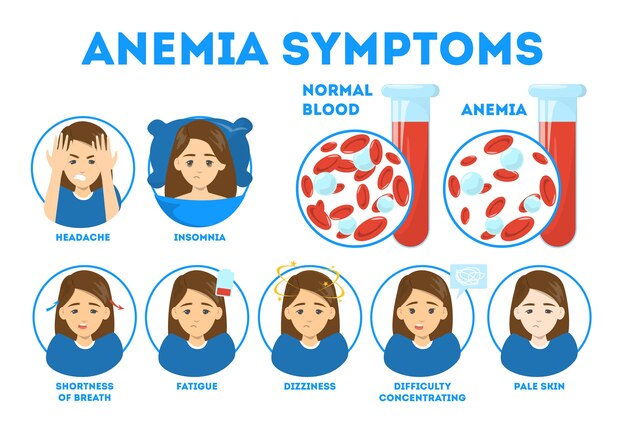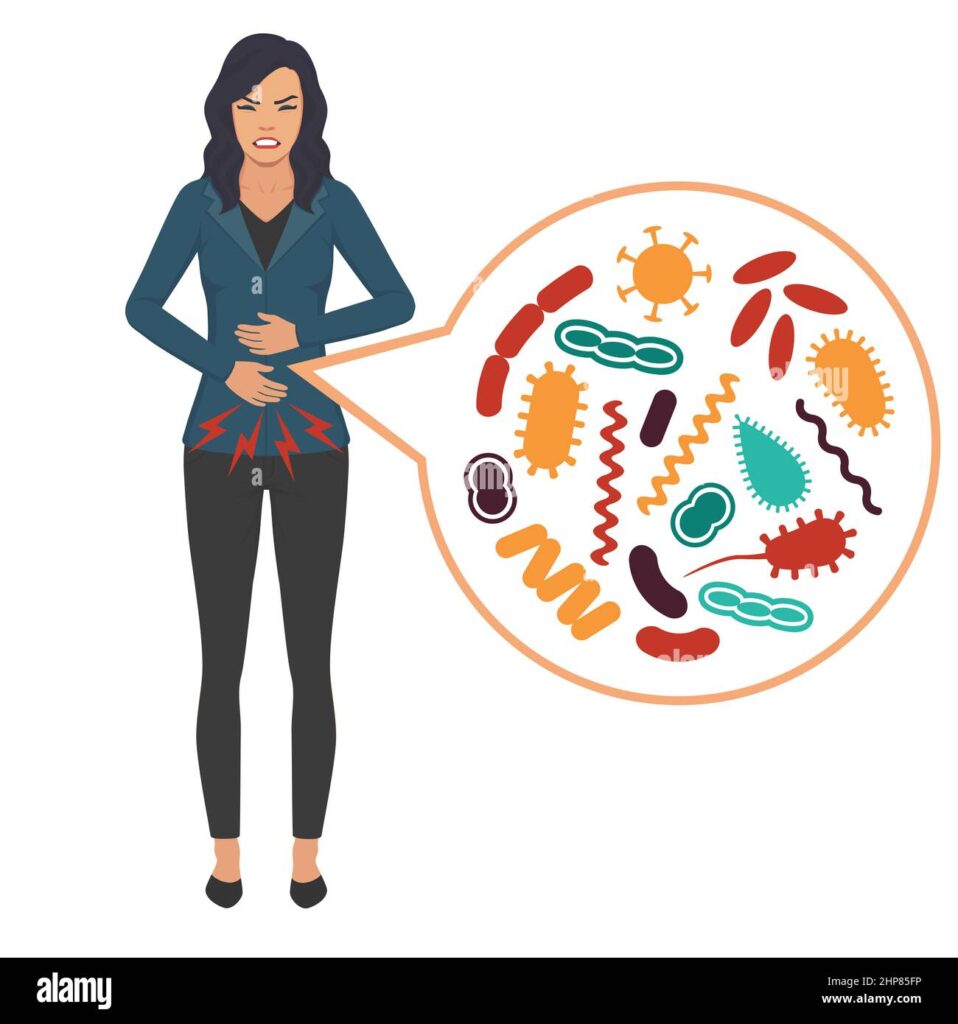
Vitamin B12, with its various other names of cobalamin (due to its constitution of the mineral cobalt), anti pernicious anemia factor and hemopoietic factor is an essential nutrient for DNA synthesis and Central Nervous System functions. RBC synthesis, energy production and nourishment of hair, nails and skin are some distinct functions of B12 that make it crucial for a healthy living. Vitamin B12 is water soluble and thus excess if absorbed is excreted as one urinates.
Cobalamin is structurally similar to heme. It is absorbed from the ileum of small intestine. However, the whole mechanism involves its attachment to intrinsic factor (IF) secreted from gastric parietal cells. The B12-IF complex then binds with the mucosal receptors and is internalized. It is a heat stable vitamin, red in color that is stored in liver. Pertaining to this fact, animal liver is a rich source of cobalamin. Backed by research, William Murphy and George Minot proved the effectiveness of liver therapy in treating pernicious anemia.
SYMPTOMS OF VITAMIN B12 DEFICIENCY:
1. Anemia:
Due to its role in the formation of RBCs, B12 deficiency is most likely to present with the very first symptom of anemia. The anemia is characterized by symptoms such as headache, pallor, dizziness etc. The RBCs become enlarged called macrocytes thus it is also termed as Megaloblastic anemia. Cobalamin has a role in RBC maturation and hemopoiesis. If B12 deficit occurs, the level of homocysteine is raised in blood leading to homocysteinuria. Excess homocysteine is a trigger of myocardial infarction. Thus, cobalamin has a protective function against heart diseases.

2. Neurological Symptoms:
Cognitive impairment (loss of judgement and thinking) with depression, mood swings and psychosis are the signs of B12 scarcity. Central nervous system is adversely affected leading to memory and learning problems. Paresthesia (burning and tingling sensation) is observed in hands and feet. Symptoms may worsen in elderly and may even aggravate to Alzheimer’s disease. Oral supplementation of folate may relieve symptoms of macrocytic anemia. However, neurological cure of subacute combined degeneration requires B12.

3. Gastrointestinal and Oral Symptoms:
Gastrointestinal symptoms of B12 deficiency include diarrhea, bloating, nausea, vomiting, flatulence and weight loss. Fatigue and low energy state also results from inadequate nutrition of the body. Oral symptoms such as mouth sores, glossitis (inflammation of the tongue) and painful red tongue are common in low cobalamin conditions. Glossitis may have other causes however a combination of glossitis and stomatitis is a sharp marker of B12 scarcity.

4. Muscle and Bone weakness:
Staggering gait, ataxia and difficulty in walking and maintaining balance are due to both bone and muscle weakness. Muscle cramps and vision problems are both due to sensory and motor nerve deficits. Romberg’s sign and Babinski sign become positive. Osteoporosis is characterized by weakening of bones that can also cause fractures over time. The B12 supplementation can improve symptoms.

5. Poor Skin, Nails and Hair:
Hyperpigmentation, eczema, acne and vitiligo are the skin conditions associated with Vitamin B12 deficiency. On the other hand, weaker nails and hair are also other indications. nails become brittle and brown and hair loss is frequent.

Diagnostic Test for Vitamin B12 deficiency:
- Radioimmunoassay: Radio labelled cyano-cobalamin is administered orally and its excretion in stool is examined. In case of pernicious anemia, 70 -90% of the administered dose is observed in stool rather than the normal value of 5-30%.
- FIGLU test: As a consequence of B12 scarcity, methyl folate trap occurs and folic acid is depleted. FIGLU test becomes positive with associated folate deficiency.
- Peripheral blood picture: a complete blood count (CBC) gives the levels of vitamin B12 in blood. Lower than normal is indicative of deficiency.
Vulnerable Groups:
People with
- Pernicious anemia as this autoimmune disorder disables the synthesis of intrinsic factor thus interfering with the absorption of B12.
- conception as they require an extra amount
- Gastritis have low hydrochloric acid produced for the absorption of vitamin
- a nutritionally restrictive diet plan such as a vegan diet
- Excessive alcohol consumption
- older age of about 60 years as the ability to absorb vitamin decreases with age
- use of drugs colchicine, phenphormin, KCl, ethanol etc.
are all vulnerable to deficiency symptoms so they must be taken special care of.
Dietary Sources of Vitamin B12:
Red meat, beef liver, kidney, poultry, fish, eggs, milk and fortified foods such as fortified cereals, nutritional yeast etc. It is also synthesized by human intestinal flora.
Recommended Daily Allowance:
Infant – approximately 0.3µg/day
Children – approximately 1–2 µg/day
Normal adult – approximately 3 µg/day
Requirement is increased during pregnancy & lactation which is about 4 µg/day.
DISCLAIMER: this post is just for knowledge and to let one know of his/her vulnerability to disease. In case of any severity, you should see a medical specialist and take medications accordingly.
RECENT ARTICLES:
FOLIC ACID
NIACIN